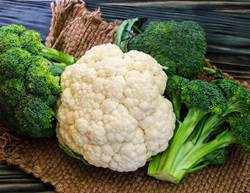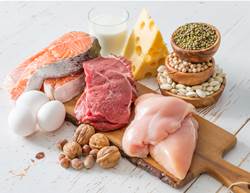Building muscle is a common health goal, but it often comes with confusion—especially around nutrition. One of the questions I hear most often as a dietitian is, “How much protein should I be eating to build muscle?”
It’s a fair question. Protein plays a vital role in muscle growth and repair, and it’s a key part of any strength-building routine. But the right amount of protein isn’t one-size-fits-all. Your ideal intake depends on a few key factors, including your activity level, age and overall health.
How much protein do I need a day?
Protein is essential not just for building muscle, but also for supporting your immune system and keeping tissues healthy. The general recommendation for adults is around 0.8 grams of protein per kilogram of body weight per day. For example, someone weighing 68 kilograms would need around 55 grams of protein daily as a minimum baseline.
That said, your needs might be higher depending on your lifestyle. Pregnant or breastfeeding women, older adults and people recovering from illness may all require more protein. Some evidence suggests that exclusively breastfeeding women may need up to 1.7–1.9 grams of protein per kilogram of body weight each day.
How much protein do I need to build muscle?
If you’re active, especially if you regularly engage in strength training or high-intensity workouts, you’ll likely need more protein to support muscle growth and recovery. Most active people should aim for 1.4 to 2.0 grams of protein per kilogram of body weight per day. In some cases—such as during intense training phases or muscle-building programs—your needs might be even higher, up to 3.1 grams per kilogram, according to the International Society of Sports Nutrition.
Not getting enough protein can impact your ability to repair muscle, maintain strength and support your immune function. Over time, low protein intake may lead to fatigue, poor recovery, slower wound healing and even muscle loss.
On the flip side, going overboard with protein consistently can put pressure on your kidneys and may lead to dehydration, as your body needs more water to process the extra load.
The key is balance—enough to support your goals without tipping too far in either direction. If you’re unsure what’s right for you, consider speaking with an accredited practising dietitian who can personalise your intake based on your body and lifestyle.
How does protein help build muscle?
Protein is one of the most important nutrients when it comes to building strength and supporting recovery. It acts as the structural foundation for many parts of the body, including your muscles.
When you exercise—especially during resistance training—you create tiny tears in your muscle fibres. This might sound alarming, but it’s a completely normal and essential part of building muscle.
After your workout, protein from your diet provides the amino acids needed to repair and rebuild those damaged fibres. This process is called muscle protein synthesis (MPS). Over time, as your muscles heal and adapt, they become stronger and larger. That’s why getting enough protein is critical for anyone trying to build or maintain muscle.
When do I need more protein?
There are certain times when your protein needs may increase, particularly if muscle growth is your goal. These include:
-
Starting a new training program: If you’re new to strength training, your body needs additional protein to support fast changes in strength and size.
-
Increasing your workout intensity: Lifting heavier weights or training more frequently increases your need for recovery nutrients—including protein.
-
Losing weight or eating in a calorie deficit: When cutting kilojoules, extra protein can help prevent muscle loss and support satiety.
-
Getting older: Age-related muscle loss, known as sarcopenia, means older adults may benefit from a higher protein intake—especially if strength training is part of their routine.
How much protein is too much?
While protein is essential, more isn’t always better. Eating significantly more than your body can use won’t necessarily boost muscle growth. Inactive individuals who consume large amounts of protein may store the excess as fat, and consistently high intakes could strain the kidneys—particularly in those with pre-existing kidney issues.
Most active people don’t need more than 2.5 grams of protein per kilogram of body weight per day. That amount generally covers the needs of regular exercisers. Exceptions include elite athletes, professional bodybuilders, or people recovering from serious injury or illness, who may require more to support intense repair and recovery processes.
While protein is key, building muscle and staying healthy also relies on a balanced diet. Carbohydrates provide fuel for your workouts and daily energy needs, while healthy fats support brain health, hormone production and cell repair.
Protein matters—but so does the big picture. Focus on an overall nutrient-dense eating pattern that matches your activity level, training goals and health needs.
Protein sources
Not all protein sources are created equal, so it’s worth including a mix of high-quality options in your diet. Whether you eat animal products or follow a plant-based lifestyle, the key is variety and balance.
Here are some excellent sources of protein to consider:
Animal-based protein sources
-
Chicken
-
Lean beef
-
Turkey
-
Eggs or egg whites
-
Fish
-
Greek yoghurt
-
Cottage cheese
-
Milk
Plant-based protein sources
-
Lentils
-
Chickpeas
-
Black beans
-
Quinoa
-
Teff
-
Tofu
-
Tempeh
-
Edamame
-
Plant-based protein powders
Animal proteins typically provide all nine essential amino acids, making them “complete” proteins. Many plant-based proteins, however, are incomplete on their own. To ensure you’re getting all essential amino acids on a plant-based diet, aim to combine complementary sources—for example, pairing lentils or black beans with whole grains like quinoa or teff.
That said, some plant-based options—like pistachios, quinoa and soy products—are naturally complete, making them smart choices for plant-based eaters.
The bottom line
Working out your ideal protein intake for muscle building doesn’t have to be overwhelming. Once you understand your personal needs and make space for a variety of nutrient-rich protein sources in your meals and snacks, you’ll be well on track to supporting your training goals.
And remember—building muscle takes time, consistency and a well-rounded diet. If you need help tailoring your nutrition plan, speak with an accredited practising dietitian for personalised guidance.










